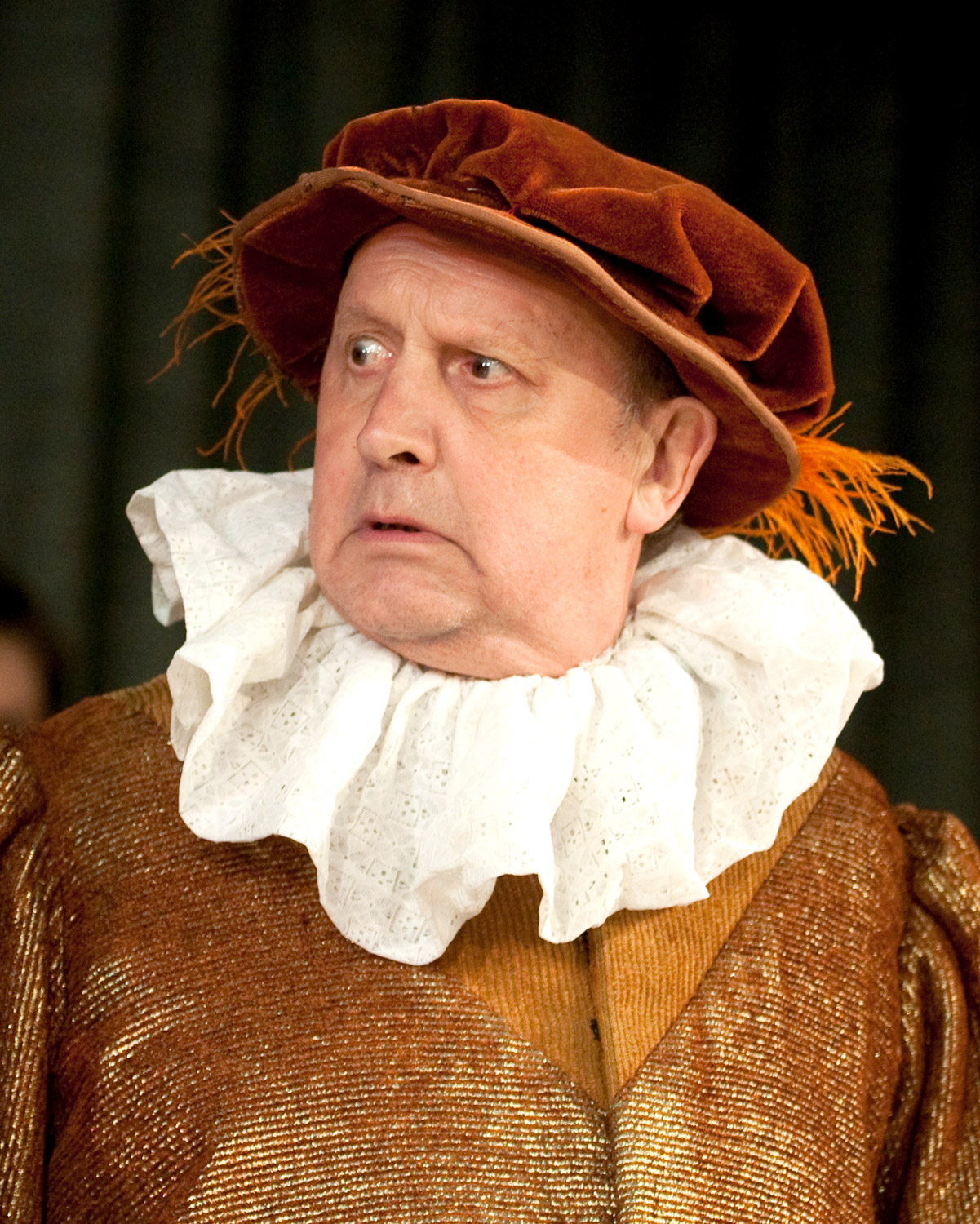A Brief History
As legend has it, the tradition of yearly Shakespeare productions at Harrow School’s Speech Room dates back to the Blitz. On 2nd October 1940, an incendiary bomb landed directly on the building and lodged in its wooden roof. The ensuing fire and water damage destroyed its theatrical rigging, scenery and stage lighting. Without these elements, Harrovian actors were confronted with playing conditions not dissimilar to those of Shakespeare’s original Globe playhouse; and so, in 1941, the School presented Twelfth Night with daylight illuminating audience and performers alike, with no other scenery than a couple of box trees and a solitary beer barrel.
Ten years later, with a cohort of Harrovian actors now well-versed in this performance style, the Old Harrovian Players was born, a society for school alumni to continue this Shakespearean tradition. And nearly seventy years on, a communal, celebratory production, performed on the very same stage, still delights audiences in Speech Room every year.

The OH Players: “passionate but under-rehearsed”
Screenwriter, producer, film director and Old Harrovian Richard Curtis reflects on his experiences with the OH Players.
“I’m sorry that my memories of the OH Players will be biased towards the comical. That was always my problem with Shakespeare – I like the chaotic fun that comes as an adjunct to his dramatic magnificence. When I was in my first production of Othello at university, I was banned from all rehearsals of Act 5, because it made me laugh so much. Eventually I was allowed on stage during actual performances, in my crucial role as Third Gentleman – but only with drawing pins taped to my thumbs, so I could self-inflict pain when it got really, really hilarious.
So here are my happiest memories – the first from an OH production of Macbeth, that I wasn’t in – but I still remember it as the biggest laugh I’ve ever heard in a theatre. Macbeth was dead, we were drawing near the end. As usual, comically speaking, the audience were softened up by the appearance of Macbeth’s head on a pole – I’ve never seen any production where this didn’t get a pretty big laugh, but this was a particularly fine green, papier mache Macbeth – or was it a painted balloon? And then, the final words having been spoken, the victorious army, with blazoned painted banners turned to leave the stage. And someone had forgotten to paint the back of the banners. So every single one – which had seconds earlier boasted various noble crests and insignia – revealed the provenance of the banners, cut out from big cardboard boxes, each one saying “Sainburys”, or “Ainsburys”, or “Burys Sain”. It was at that moment that I swore I would be an Old Harrovian Player one day.
And I wasn’t disappointed. I played Henry, Prince of Wales, in a production of Henry IV Part 1, but then I think the joke was on me, my acting woefully not up to the part. I vaguely remember leaving my sword off stage during a crucial battle scene – but otherwise it’s a blank. The sidelines are the best place to be for someone like me and I remember enjoying Taming of the Shrew enormously, when I was back playing “A Lord”, always my favourite part, no matter which play it’s in. All in all, the Old Harrovian Players are only connected in my mind with joy. One of the great disappointments of adult life is how serious things are – I thought when I grew up there’d be lots of light-hearted sport, but everyone took it so seriously I had to give up. Politics and debate just become nasty.
But the Old Harrovians were and are a wonderfully cavalier outfit – big passion, big costumes, lots of make-up and big moustaches, and the absolute minimum of rehearsal time. I hope to return to them one day when I’m older, an actual doddering lord, no need for make-up, leaning on a stick to say, “Nay, but this dotage of our general’s o’erflows the measure” and then hanging round in the wings for the rest of the show, waiting for glorious disaster to strike.”
